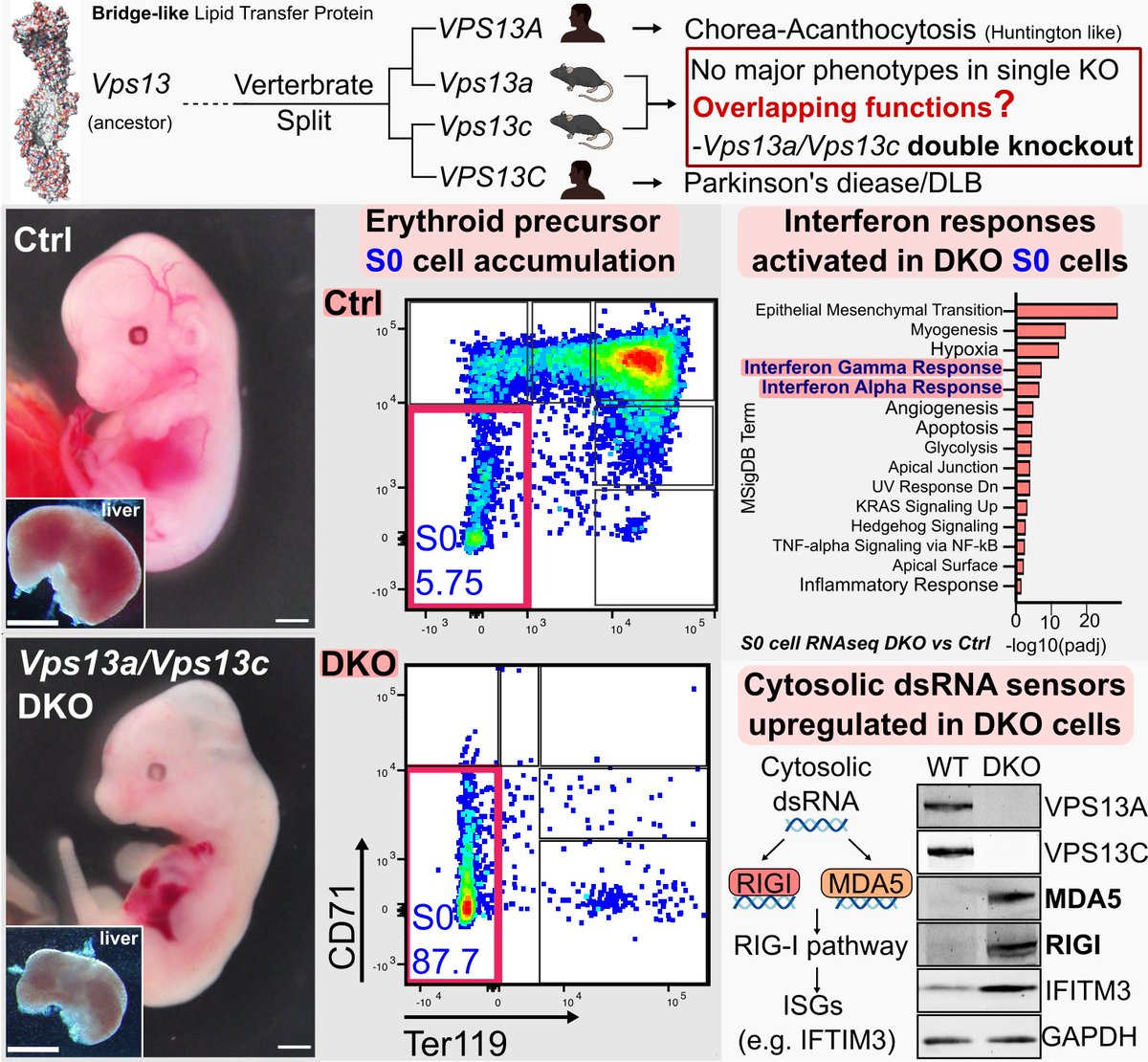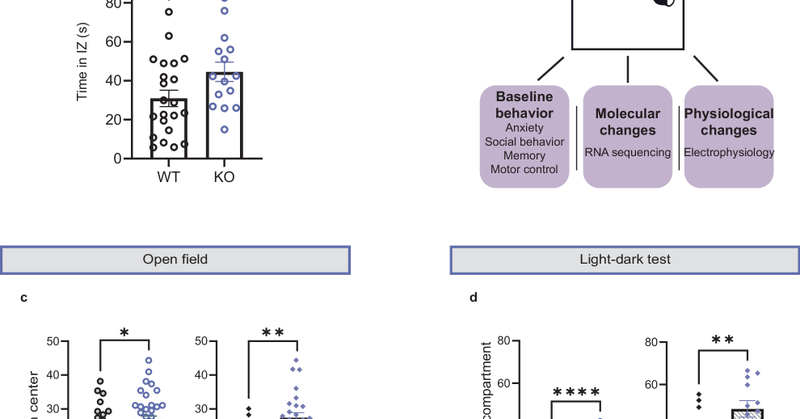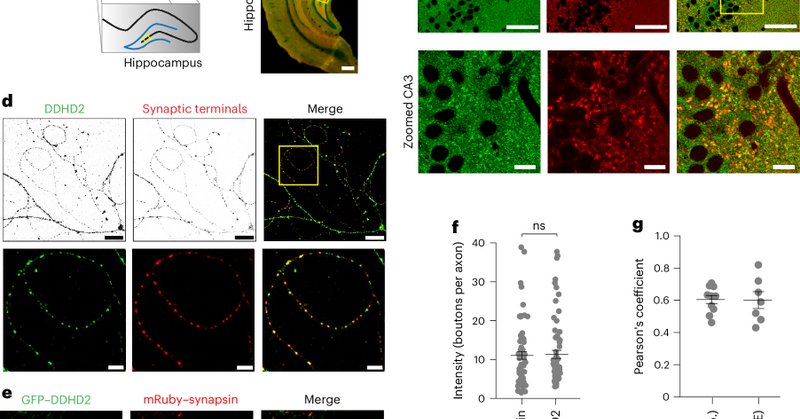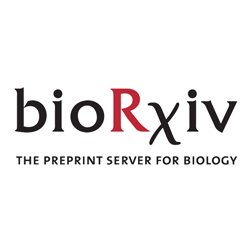
Peng Xu
@PengXu_Sci
Followers
243
Following
751
Media
4
Statuses
208
Scientist studying Parkinson's disease @PDClab @Yale. Former Alzheimer's disease researcher at Greengard lab @RockefellerUniv and PhD with @dmvirshup @DukeNUS
New Haven, CT
Joined September 2009
VPS13A and VPS13C, founding members of the bridge-like lipid transfer protein family, are split from a single ancestor gene during vertebrate evolution. Do they have overlapping functions? We addressed it at the organism level using KO mouse models with surprising findings: 1/6
3
10
55
RT @AGuillenSaman: One for the Apicomplexa peeps: ever wonder how does the IMC grow so fast during progeny formation? Where do all the lipi….
0
5
0
RT @YaleNeuro: Meet this week's #TraineeTuesday, Michael Hanna, PhD, @LifeCerealMikey!.Mike is a postdoc in the @PDClab & will start as an….
0
5
0
RT @GUmschweif: Excited to share our publication in Translational Psychiatry! Nrsn2-KO mice reveal exciting insights into the basis of stre….
nature.com
Translational Psychiatry - Characterization of Neurensin-2 knockout mice: insights into stress-resilience mechanisms
0
6
0
RT @zuhangsheng: Pleased to share our invited News & Views piece in @NatMetabolism, highlighting the emerging role of lipid metabolism in f….
0
2
0
RT @NatMetabolism: Triglycerides are an important fuel reserve for synapse function in the brain
nature.com
Nature Metabolism - Kumar et al. show that under glucose-depleted conditions, neurons can use fatty acids as an alternative source of energy to support synaptic function.
0
60
0
RT @NeuralCell: The @karchlab demonstrate that MAPT mRNA and tau protein are expressed in microglia in human brains and in hiPSC-derived #m….
0
12
0
RT @JGrutzendler: 1/ I am happy to share our latest publication in Nature Neuro We present the first subcellula….
0
15
0
RT @LaylaNassar_: Lysosomes are the cell’s recycling centers, but what pathways control the release of what they’ve broken down? In our new….
biorxiv.org
Lysosomes break down macromolecules, clear cellular waste and recycle nutrients such as cystine. We describe a novel mechanism whereby JIP4 regulates lysosomal cystine storage by controlling the...
0
6
0
RT @BerroLab: Wondering how/whether AI can be helpful in your mathematical models in cell biology? Whether you are a biologist, physicist,….
0
3
0
RT @Krauselab_Yale: 🚨 @elonmusk, we need your attention! 🚨. A proposed 40% cut to the NIH budget will have catastrophic consequences for p….
0
2
0
RT @LifeCerealMikey: 📢The Hanna Lab is coming to the Department of Biochemistry and Molecular Biology at Penn State in January 2026! We’ll….
0
6
0
RT @YaleWestCampus: Julien Berro thinks about the force – particularly around the 'cytoskeleton' scaffold inside our cells. The member of t….
0
6
0
RT @ShoSuzuki20: My lab has an open position for a postdoc, technician, and a PhD student. If you have an interest, please feel free to con….
0
10
0
RT @RobertoZoncu: Beautiful work on PCSK9 as driver of metastatic organ targeting in pancreatic cancer by @GillesRademaker and @rushika_per….
0
4
0
RT @KavliAtYale: 🚨HAPPENING TOMORROW🚨 Don’t miss the 2025 ✨@KavliAtYale Distinguished Lecture✨ with Erika Holzbaur, PhD (@PennMedicine @Pen….
0
2
0
This work was completed at @PDClab @YaleNeuro @YaleCellBio with incredible colaborators @mancuso_rubia, Marianna Leonzino, Caroline Zeiss, @Krauselab_Yale with generous supports from @ASAP_Research @NIH.
biorxiv.org
VPS13 is the founding member of a family of proteins that mediate lipid transfer at intracellular membrane contact sites by a bridge-like mechanism. Mammalian genomes comprise 4 VPS13 genes encoding...
1
2
14



